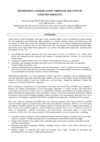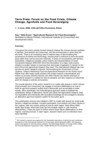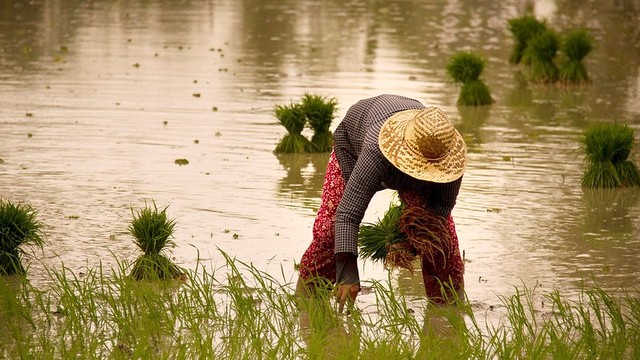Towards food sovereignty: reclaiming autonomous food systems
This project looked at the ecological basis of food and agriculture, the social and environmental costs of modern food systems, and the policy reversals needed to democratise food systems.

Throughout the world, civil society and indigenous peoples are the prime movers behind a newly emerging food sovereignty movement. This alternative framework for food and agriculture aims to guarantee and protect people’s space, ability and right to define their own models of production, food distribution and consumption patterns.
It is a transformative process that aims to regenerate a diversity of autonomous food systems based on equity, social justice and ecological sustainability.
What IIED did
IIED worked with the Centre for Agroecology and Food Security (CAFS) and the Rachel Carson Centre for Environment and Society to publish a book that showed farmers, pastoralists, indigenous peoples, fisherfolk, food workers and consumers all working to promote food sovereignty. The aim was to highlight the importance of locally controlled and diverse food systems to sustain both people and nature.
'Towards food sovereignty: reclaiming autonomous food systems' was written by Dr Michel Pimbert, director of CAFS at Coventry University. It is available as a series of downloadable PDFs that include linked video clips and audio recordings.
Part one of the book, 'Another world is possible for food and agriculture', highlights the global importance of agriculture and food systems for livelihoods and environments today. It also summarises evidence on the social and environmental impacts of modern food systems.
Part two, 'Local organisations at the heart of food sovereignty', looks at the importance of local organisations for sustainable livelihoods and food systems. Specific examples highlight some of the many practical ways in which local, autonomous organisations manage and oversee different links in the food chain, from seed to plate.
Part three, 'Transformation for food sovereignty', identifies the social actions needed to support locally determined food systems and autonomous organisations. These cover four interrelated areas: political, economic, social and ecological.
Chapter titles:
Chapter 1: Local food systems, livelihoods and environments
Chapter 2: The making of multiple crises in food, agriculture and environment
Chapter 3: Food sovereignty: a citizens’ vision of a better world
Chapter 4: The role of local organisations in sustaining local food systems, livelihoods and the environment
Chapter 5: Reclaiming citizenship: empowering civil society in policymaking
Chapter 7: Transforming knowledge and ways of knowing
The chapters not listed are not available.
Workshop insight
In 2008, a Conservation and Food Sovereignty workshop was held in Barcelona at the World Conservation Congress. You can watch 12 videos from the workshop, including a question-and-answer session, in the playlist below or on IIED's YouTube channel.
Publications
Additional resources
Problematizing neoliberal biodiversity conservation: Displaced and disobedient knowledge, Jim Igoe, Sian Sullivan (2009), IIED Briefing
Rethinking conservation through the lens of food sovereignty (Workshop report, World Conservation Congress, Oct. 2008), IIED, CEESP (2008), IIED, IUCN/CEESP Event/workshop report
Markets for biodiversity and ecosystems: reframing nature for capitalist expansion? Workshop at IUCN Oct 2008, Sian Sullivan (2008),IIED Event/workshop report
How to build an eco-functional planet: The paradoxical assumptions behind the pervasive belief that market-driven managerialism is the key to our ecological future, Jim Igoe (2008), Dartmouth College, Department of Anthropology Report/paper










